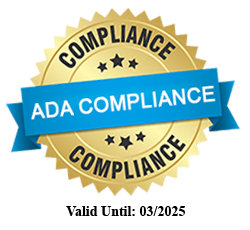
Cape Coral Town Center Community Development District
Est. 2023; Located in Lee County, Florida
INTRODUCTION TO THE CAPE CORAL TOWN CENTER COMMUNITY DEVELOPMENT DISTRICT
The Cape Coral Town Center Community Development District (“District”) is an independent special district, created pursuant to and existing under the provisions of Chapter 190, Florida Statutes, and established by Ordinance No. 64-23, enacted by the City Council of the City of Cape Coral, Florida, on August 16, 2023. The District includes within its boundaries approximately 130.27 acres, more or less, located within the municipal boundaries of the City of Cape Coral, Florida.
Currently the land found within the District is developer funded; however, the District has the authority to impose and levy assessments on the property found within its boundaries. These assessments pay the construction, operation and maintenance costs of certain public facilities and services of the District and are to be set annually by the governing Board of the District. These assessments, when levied, are in addition to county and other local government taxes and assessments and all other taxes and assessments provided for by law. The District also can impose certain fees to pay the construction, operation, and maintenance costs of certain District facilities.
A map of the District’s boundaries can be found here: PDF | RTF
Public Purpose:
The Cape Coral Town Center Community Development District is a local, special purpose government entity authorized by Chapter 190 of the Florida Statutes as amended and created by ordinance of the City Council of the City of Cape Coral, Florida as an alternative method of planning, acquiring, operating and maintaining community-wide improvements in planned communities. A CDD provides the “solution” to Florida’s need to provide valuable community infrastructure generated by growth, ultimately without overburdening other governments and their taxpaying residents. Community Development Districts represent a major advancement in Florida’s effort to manage its growth effectively and efficiently. This allows a developer to establish higher construction standards, meanwhile providing a long-term solution to the operation and maintenance of the community’s facilities.
COMMUNITY DEVELOPMENT DISTRICTS – WHAT YOU SHOULD KNOW!
A Community Development District (CDD) is a governmental unit created to serve the long-term specific needs of its community. Created pursuant to chapter 190 of the Florida Statutes, a CDD’s main powers are to plan, finance, construct, operate and maintain community-wide infrastructure and services specifically for the benefit of its residents.
WHAT WILL THE CDD DO?
Through a CDD, the community can offer its residents a broad range of community-related services and infrastructure to help ensure the highest quality of life possible. CDD responsibilities within our community may include storm water management, potable and irrigation water supply, sewer and wastewater management, and streetlights.
HOW CDDS OPERATE
A CDD is governed by its Board of Supervisors which is elected initially by the landowners, then begins transitioning to residents of the CDD after six years of operation. Like all municipal, county, state, and national elections, the Office of the Supervisor of Elections oversees the vote, and CDD Supervisors are subject to state ethics and financial disclosure laws. The CDD’s business is conducted in the “Sunshine,” which means all meetings and records are open to the public. Public hearings are held on CDD assessments. and the CDD’s budget is subject to annual independent audit.
RELATIONSHIP WITH HOMEOWNER’S ASSOCIATIONS
The CDD complements the responsibilities of community homeowner’s associations (HOAs). Many of the maintenance functions handled by these associations in other communities may be handled by the CDD. However, the associations have other responsibilities such as operating amenities and ensuring that deed restrictions and other quality standards are enforced. The CDD may contract with the master homeowner’s association to perform maintenance functions.
BENEFITS TO RESIDENTS
Residents within a community with a CDD may expect to receive three major classes of benefits. First, the CDD provides landowners consistently high levels of public facilities and services managed and financed through self-imposed fees and assessments. Second, the CDD ensures that these community development facilities and services will be completed concurrently with other parts of the development. Third, CDD landowners and electors choose the Board of Supervisors, which is able to determine the type, quality and expense of CDD facilities and services.
Other savings are realized because a CDD is subject to the same laws and regulations that apply to other government entities. The CDD is able to borrow money to finance its facilities at lower, tax-exempt, interest rates, the same as cities and counties. Many contracts for goods and services, such as annually negotiated maintenance contracts, are subject to publicly advertised competitive bidding.
Residents and property owners in a CDD set the standards of quality, which are then managed by the CDD. The CDD provides perpetual maintenance of the environmental conservation areas. This consistent and quality-controlled method of management helps protect the long-term property values in a community.
THE COST OF A CDD
The cost to operate a CDD is borne by those who benefit from its services. Property owners in the CDD are subject to a non-ad valorem assessment, which appears on their annual property tax bill from the county tax collector and may consist of two parts—an annual assessment for operations and maintenance, which can fluctuate up and down from year to year based on the budget adopted for that fiscal year—and an annual capital assessment to repay bonds sold by the CDD to finance community infrastructure and facilities, which annual assessments are generally fixed for the term of the bonds. Because costs and services vary depending upon the individual CDD, specific fee information is available for each community.
LASTING VALUE
The CDD makes it possible for our community to offer the most desirable elements of a master-planned community. Residents enjoy high quality infrastructure facilities and services with the comfort and assurance of knowing that the standards of the community will be maintained long after the developer is gone. With a CDD in place, residents are assured of the ability to control quality and value for years to come.
COMMUNITY DEVELOPMENT DISTRICT FAQS
Q: What is the Community Development District in our community specifically responsible for?
The CDD will provide the following publicly owned elements:
- Landscaping and irrigation
- Stormwater management
- Parking structures
- Public spaces
Q: Who governs the CDD?
The CDD is governed by a five-member Board of Supervisors elected initially by the property owners. Eventually, the Board will he elected by majority vote of the resident electors in the community. A professional manager implements the policies of the Board.
Q: How are CDD services financed?
The CDD issues Special Assessment Revenue Bonds to finance community infrastructure. Generally, Community Development Districts assess each property owner a yearly capital debt service assessment to pay back those bonds. In the case of the CDD a significant portion of this capital assessment will be prepaid by the developer at the time of closing. In addition, to maintain the facilities of the community and administer the CDD, the CDD conducts a public hearing each year at which it adopts an operating and maintenance budget. The funding of this budget is levied as an operating and maintenance assessment on your property by the Board of Supervisors. All residents pay for a share of the maintenance of the CDD improvements through this annual assessment.
Q: How are annual assessments determined?
The annual operating and maintenance assessment amount will be set annually by the Board of Supervisors. The factors that determine an adjustment in the assessment consist of inflation and changes to the levels of service.
Q: Can I pay off the bonds on my property?
In most cases, yes! Please send an email to: estoppels@pfm.com
Q: What are the ongoing responsibilities of the CDD?
The ongoing responsibilities of the CDD are to administer CDD bonds, operate and maintain the community facilities for the benefit of the property owners.
PUBLIC RECORDS
DISTRICT DOCUMENTS
AGENDAS
Fiscal Year 2026
- 10-21-2025 Meeting Cancelled
- 11-18-2025 Meeting Cancelled
- 12-16-2025 Meeting Cancelled
- 01-20-2026 Meeting Cancelled
- 02-17-2026 Meeting Cancelled
- 03-17-2026
- 04-21-2026
- 05-19-2026
- 06-16-2026
- 07-21-2026
- 08-18-2026
- 09-15-2026
Fiscal Year 2025
- 10-15-2024 Meeting Cancelled
- 11-19-2024 Meeting Cancelled
- 12-17-2024 Meeting Rescheduled
- 12-19-2024 PDF | RTF
- 1-21-2025 Meeting Cancelled
- 2-18-2025 PDF | RTF
- 3-18-2025 Meeting Cancelled
- 4-15-2025 Meeting Cancelled
- 5-20-2025 Meeting Cancelled
- 6-17-2025 Meeting Cancelled
- 7-15-2025 Meeting Cancelled
- 8-19-2025 Meeting Rescheduled
- 9-9-2025 Rescheduled Meeting PDF | RTF
- 9-16-2025 Meeting Cancelled
Fiscal Year 2024
- 11-28-2023 PDF | RTF
- 12-14-2023 PDF | RTF
- 01-16-2024 Meeting cancelled
- 02-20-2024 PDF | RTF
- 02-20-2024 Final PDF | RTF
- 03-26-2024 Workshop Meeting PDF | RTF
- 03-28-2024 PDF | RTF
- 04-16-2024 Meeting Cancelled
- 05-21-2024 Meeting Cancelled
- 06-10-2024 PDF | RTF
- 07-16-2024 PDF | RTF
- 08-13-2024 Meeting Cancelled
- 09-17-2024 PDF | RTF
- 09-17-2024 Final PDF | RTF
AUDITS
The District’s audited financial statements will be prepared by an independent auditor, accepted by the Board and will then be available to view: Financial Statement
If you are interested in an audit for a previous fiscal year, please contact the District Office. For more information on audits, please visit: https://flauditor.gov
BUDGETS
The Board adopts the budget each year in accordance with a process outlined in the Florida Statutes. Each Fiscal Year runs from October 1 to September 30. The operative words in this process are “approve” and “adopt.” The Board will first approve a proposed budget in the spring and will provide it to Lee County at least 60 days before the budget hearing, at which time the Board will adopt the final budget and levy the resulting non-ad valorem assessments.
ADDITIONAL DISTRICT DOCUMENTS
Meeting Minutes
Fiscal Year 2025
District Financials
BOARD INFORMATION
Florida Law requires that the District publish an annual meeting schedule for the fiscal year one time in a newspaper of general circulation in Lee County. The Board may decide to cancel or reschedule any of its meetings or add meetings or workshops as items of business dictate. These new meetings will be advertised in the newspaper at least seven (7) days in advance, and agendas are available on the website a week prior to the meeting.
-
 Simone Levinson Assistant Secretary
Simone Levinson Assistant SecretarySeat 5
222 Lakeview Avenue, Suite 1130
West Palm Beach, FL 33401Expires: 11/2028
-
 James Zboril Chairman
James Zboril ChairmanSeat 1
222 Lakeview Avenue, Suite 1130
West Palm Beach, FL 33401Expires: 11/2026
-
 Jordan Cohen Assistant Secretary
Jordan Cohen Assistant SecretarySeat 2
222 Lakeview Avenue, Suite 1130
West Palm Beach, FL 33401Expires: 11/2026
-
 Michael Christiano Assistant Secretary
Michael Christiano Assistant SecretarySeat 3
222 Lakeview Avenue, Suite 1130
West Palm Beach, FL 33401Expires: 11/2026
-
 David Levinson Vice Chairman
David Levinson Vice ChairmanSeat 4
222 Lakeview Avenue, Suite 1130
West Palm Beach, FL 33401Expires: 11/2028
BOARD OF SUPERVISORS
MEETING DATES:
The Board of Supervisors of the Cape Coral Town Center Community Development District will hold their regular meetings for Fiscal Year 2025-2026 at 2503 Cape Coral – Lee County Library Conference Room, 921 S.W. 39th Terrace, Cape Coral, FL 33914 at 11 :00 a.m. as follows:
- October 21, 2025
- November 18, 2025
- December 16, 2025
- January 20, 2026
- February 17, 2026
- March 17, 2026
- April 21, 2026
- May 19, 2026
- June 16, 2026
- July 21, 2026
- August 18, 2026
- September 15, 2026
MANAGEMENT SERVICES

PFM GROUP CONSULTING LLC
PFM Group Consulting LLC has extensive experience providing consulting and management services to special districts located throughout Florida. Our firm provides services at every stage of a district’s life from establishment to full development. We offer Financial Advisory Services and District Management Services (including Administrative Services, Accounting, Minutes and Public Records Services, and Lien Book & Tax Roll Services) to over 50 CDDs throughout the state of Florida.
Orlando East Office
Address: 3501 Quadrangle Blvd., Suite 270
Orlando, FL 32817
Phone: (407) 723-5900
Fax: (407) 723-5901
Services
- Attend, record and conduct all regularly scheduled Board of Supervisors Meetings including landowners meetings.
- Presentation of District’s annual budget in accordance with Chapter 190, Florida Statutes.
- Ensure District is in compliance with administrative and financial reporting for Community Development Districts.
- Correspond and communicate with Board of Supervisors and Staff to respond to the various needs of the District and Community.
- Prepare agendas for circulation to the Board of Supervisors.
- Prepare annual budget, financials, monthly disbursements.
- Review annual insurance policy to ensure District maintains proper insurance coverage.
CONTACT INFO
Cape Coral Town Center Community Development District
3501 Quadrangle Blvd., Suite 270
Orlando FL 32817
Tel: (407) 723-5900
www.cc-cdd.com/
Registered Agent
Jonathan Johnson of Kutak Rock LLP
107 West College Avenue
Tallahassee FL 32301
Records District Custodian
Jane Gaarlandt
PFM Group Consulting LLC
3501 Quadrangle Blvd., Suite 270
Orlando, FL 32817
(407) 723-5900
recordrequest@pfm.com
For estoppel and payoff requests, please email: estoppels@pfm.com
Send Us a Message
Jane Gaarlandt, District Manager
gaarlandtj@pfm.com
Kwame Jackson, Assistant District Manager
jacksonk@pfm.com
Florida Public Records Notice: Emails to and from Community Development District’s are public record according to Section 119 Florida Statutes. For more information, please see http://www.myflsunshine.com/.
Note: Under Florida law, email addresses are public records. If you do not want your email address released in response to a public records request, do not send electronic mail to this entity. Instead, contact this office by phone or in writing.

